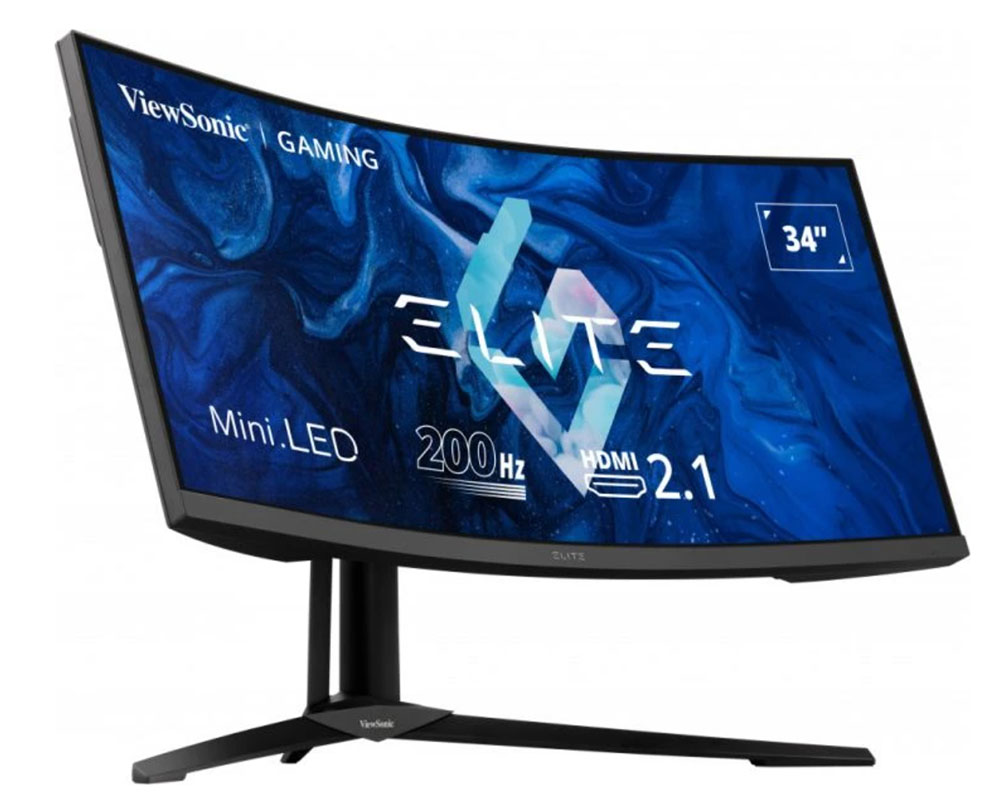Why you can trust Tom's Hardware
There is no doubt that Mini LED is fast becoming the go-to tech for high-contrast monitors. Though OLED will always have the advantage with its self-emissive pixel structure, LCD, in the minds of most users, is the more practical screen type. Add in wide color gamuts and high brightness, and the fact that a good Mini LED screen isn’t vastly different from an OLED in quality, and you have something truly compelling.
Following in the footsteps of the stunning XG321UG Ultra HD monitor, the XG341C-2K brings the goods to the curved ultra-wide category. Gamers like curved screens, and this is one of the best. The picture is stunning in both SDR and HDR modes. With 1,400 nits available, highlights always pop and black levels are deep thanks to 1,152 dimming zones and well-implemented local dimming.
Large color gamuts are a must in the premium gaming monitor genre and the XG341C-2K delivers there too. It covers nearly 100% of DCI-P3, putting it in an elite group. Appropriate then that ViewSonic calls it “Elite.” Though I noted a few initial inaccuracies and a missing sRGB mode, color is rich and vibrant, and I doubt anyone will complain about the picture.
The XG341C-2K is a gamer’s tool as well. With low input lag and smooth operation, I found it very accurate for moving and shooting. Its generous width and 1500R curve deliver immersive play with a picture that wraps around the user’s eyepoint. The only flaws here are the inability to run Adaptive-Sync at 200 Hz and the lack of brightness control when Adaptive-Sync is turned on. These are unusual quirks but not deal-breakers. I enjoyed every minute of gaming on this monitor.
Premium ultra-wide screens like the XG341C-2K are still expensive, but progress is being made. At $1,500, it costs the same as a Samsung Neo G8 and undercuts the Acer X35. And it offers almost as much contrast as the Alienware AW3423DWF with higher brightness than that OLED monitor. Operational quirks aside, this is an excellent gaming monitor with a stunning picture. Users seeking a high-performance 21:9 screen should definitely check it out.
MORE: Best Gaming Monitors
MORE: How We Test PC Monitors
Get Tom's Hardware's best news and in-depth reviews, straight to your inbox.
MORE: How to Buy a PC Monitor: A 2022 Guide
MORE: How to Choose the Best HDR Monitor

Christian Eberle is a Contributing Editor for Tom's Hardware US. He's a veteran reviewer of A/V equipment, specializing in monitors. Christian began his obsession with tech when he built his first PC in 1991, a 286 running DOS 3.0 at a blazing 12MHz. In 2006, he undertook training from the Imaging Science Foundation in video calibration and testing and thus started a passion for precise imaging that persists to this day. He is also a professional musician with a degree from the New England Conservatory as a classical bassoonist which he used to good effect as a performer with the West Point Army Band from 1987 to 2013. He enjoys watching movies and listening to high-end audio in his custom-built home theater and can be seen riding trails near his home on a race-ready ICE VTX recumbent trike. Christian enjoys the endless summer in Florida where he lives with his wife and Chihuahua and plays with orchestras around the state.
-
cknobman Lots to like here but a couple of nit picks considering the high price.Reply
8 bit panel
Needs to be calibrated as its really poor from the factory
Quirks with adaptive sync
If this was priced at $999 it would be much more appealing.
